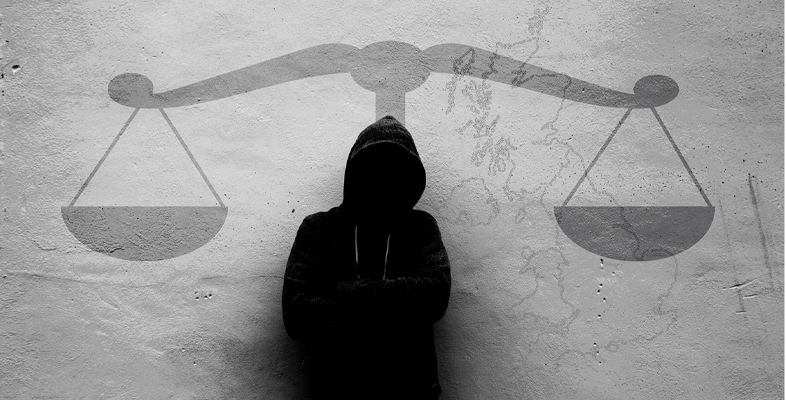5 A mind to a crime
A key principle in law is concerned with the mental capacity to act in a certain way, knowing it to be against the law. This derives from the Latin term mens rea. This refers to the mental element of a person’s intention to commit a crime, a knowledge that their action or lack of action would result in a crime being committed. You will remember from Activity 3 the concept of doli incapax, Latin for ‘incapable of evil’. This is the principle that determines, in English law, the age of being held responsible for a crime.
Activity 5 Brains and minds
Returning to another part of the BBC’s Law in Action programme, now listen to the views of psychologist Dr Eileen Vizard who offers reasons for thinking that raising the age of criminal responsibility is not only sensible, it is urgent and necessary to prevent injustice and to promote children’s wellbeing.
Transcript: Audio 2
Drawing on the points made by Dr Vizard and your own views on child development, make a list of three reasons why physical development should be taken into account by the law.
Discussion
Everyone accepts that children are in a state of change and development. Throughout adolescence – roughly the period between 12 and 21 – children’s bodies will be growing and taking on more of the physical characteristics commonly associated with adulthood. It is only relatively recently that advances in neuroscience have revealed something similar is occurring, out of sight, between a child’s ears – in their brains. The importance of these medical insights is that they bring the strength of evidence associated with good scientific practice to bear on more abstract philosophical questions about ‘intent’ and ‘responsibility’. For Dr Eileen Vizard it is time for the law to listen to the science and raise the age.
The criminal law tends to see things in black and white – guilty or innocent. This means it can be a dangerous instrument to use in relation to the ambiguities and uncertainties of childhood and children’s behaviour. In the final part of this session there is an opportunity to consider this from another perspective.
